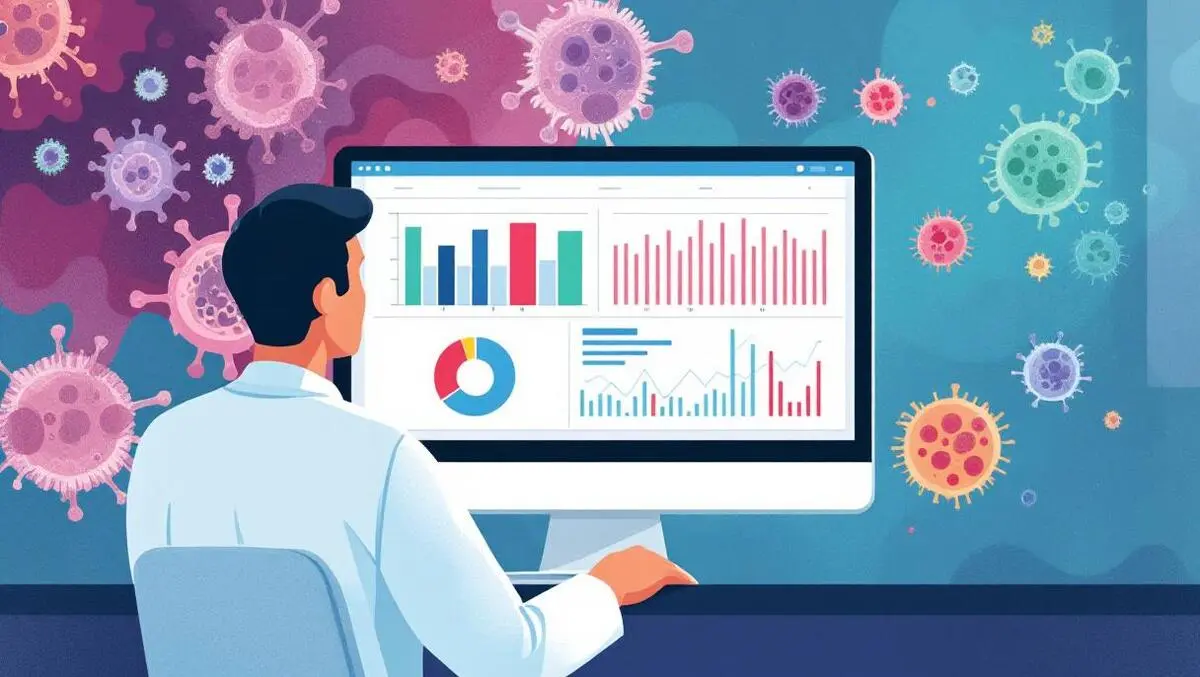Agenus and Noetik have entered into a collaboration to develop predictive biomarkers for immunotherapy in cancer patients by applying large-scale artificial intelligence models to clinical and biological data.
The partnership focuses on integrating Noetik's OCTO, a 1.5 billion parameter multimodal foundation model, with clinical outcomes from Agenus' BOT/BAL combination therapy in an effort to improve precision in cancer treatment selection. OCTO is trained using data from over 200 million tumour and immune cells, involving spatial proteomics, transcriptomics, pathology images, DNA data, and patient outcomes. Data is drawn from thousands of patients with cancer types including colorectal, non-small cell lung, ovarian, and sarcomas.
BOT/BAL, which combines botensilimab (an Fc-enhanced anti-CTLA-4 antibody) and balstilimab (an anti-PD-1 antibody), has been studied in more than 1,200 patients and shown clinical activity across nine tumour types, including those typically resistant to immunotherapy. The companies aim to enhance the identification of which patients are most likely to respond to this therapy by deploying advanced virtual cell modelling at scale.
Immunotherapy prediction
The immunotherapy market, currently valued at over USD $200 billion, faces significant challenges as up to 80% of patients do not respond to existing immunotherapies. This new initiative aims to address the high rate of treatment resistance by employing an AI-powered approach to refine patient selection and enhance the likelihood of successful treatment outcomes.
Ron Alfa, CEO and Co-Founder of Noetik, commented on the collaboration's aims:
Enhancing clinical efficacy is the most important problem in developing new medicines, and exactly what we've trained our foundation models to do. We are excited to deploy Noetik's virtual cell foundation models on Agenus's rich clinical data to uncover biomarkers that can enrich patient therapeutic response, improve trial outcomes, and ultimately deliver more precise therapies.
The use of large, multimodal datasets is a central aspect of the project. Noetik's foundation models integrate spatial proteomics, transcriptomics, histopathology, DNA genotyping, and other clinical metadata to create a detailed systems-level view of tumour microenvironments in actual patients. This approach aims to uncover new insights that can inform drug discovery and development across both early and advanced stages of clinical research.
Data-driven approach
Agenus' BOT/BAL combination targets complementary immune pathways and has been recognised for activity in both immunotherapy-resistant and responsive tumours. By combining Agenus' clinical-stage datasets with Noetik's foundation models, the goal is to accelerate biomarker discovery and improve the design and outcomes of future clinical trials.
Dr. Garo Armen, Chairman and CEO of Agenus, said:
At Agenus, we are committed to transforming cancer care through scientific innovation and next-generation immunotherapies. This collaboration with Noetik enables us to harness cutting-edge AI to better understand patient biology and tailor treatments more precisely. By integrating Noetik's virtual cell models with our expansive BOT/BAL clinical dataset, we have the potential to accelerate the identification of predictive biomarkers, enhance the success of our pivotal trials, and ultimately improve outcomes for patients who currently have limited or no treatment options.
BOT/BAL has generated clinical data and recognition from trials in late-line and neoadjuvant settings. The expectations of both parties are that deploying OCTO on this expanding dataset can generate actionable biomarkers to stratify patient responses further.
Broader trends in precision medicine
This collaboration aligns with broader trends in biomarker-driven clinical trial design and reflects the growing regulatory emphasis on AI-enabled precision medicine. Agencies such as the FDA are prioritising AI-based approaches for more individualised and equitable cancer therapy delivery to address issues such as high oncology drug failure rates, which remain around 90%.
The integration of AI in clinical contexts, as demonstrated in this partnership, aims to accelerate the development of more targeted cancer treatments and expand access for patients who would benefit from these new approaches.



